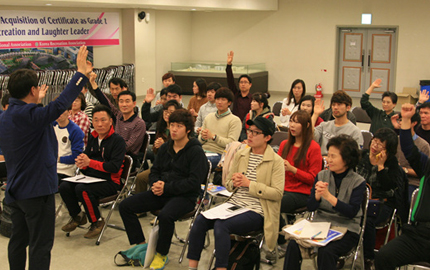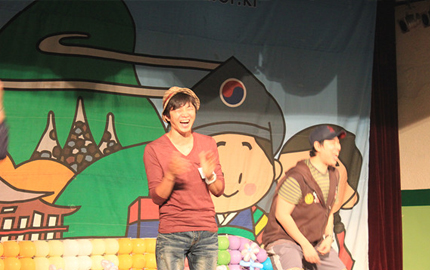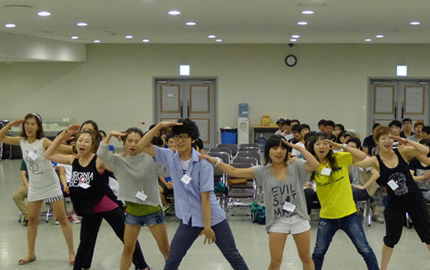1. Definition of leisure

Many scholars have research much on the concept of leisure and have defined leisure as being dynamic and whole by nature and differently depending on each country’s cultural differences.
1) Definition of leisure as time
In defining leisure, Sylverster introduced the concept of time and defined it as left over time, free time, and time away from work. Leisure is not free time but time for freedom. Gold defined leisure as free time remaining from confined time and time necessary for life of the 24 hours a day. Here, confined time refers to working time and time necessary for life to biologically indispensable time.
This opinion hinges on the analysis of leisure as activities carried out during leisure time. Leisure means a lot to the participant and has an objective in itself with very complex and various meanings, but in all encompasses time and activities. The general meaning of leisure here is activities such as rest and getting refreshed freely and voluntarily carried out by participants out of the sphere of responsibility according to their will.
3) Leisure as a subjective state of mind
De Grazia said leisure always refers to the subjective state of mind or quality of feeling. If the state of mind is healthy, happy and joyful without worries, then the best leisure is being enjoyed. Pieper understood leisure linked to religious festivities as a mental and emotional state transcending time and the concept of life and as an opportunity for physical, psycholocial and self-growth.
4) Leisure as value
This is of the opinion that leisure’s meaning is found when recreation has value when used usefully for self-development
2. The relationship between work and leisure
The definition of the relationship between work and leisure is largely divided into two. Wilensky divided it into the continuum theory and compensation theory.
The continuum theory stipulates that leisure does not mean just free time away from work in that the experience and attitude of work continues. Just as human beings find satisfaction in expressing themselves through work, leisure also plays the same function and is viewed as a continuation of work. People find satisfaction and develop themselves through knowledge and experience at work and leisure provides the opportunity for further self-development.
The compensation theory distinguishes work and leisure and is the form
of leisure often manifested in workers doing repetitive and simple work. They enjoy leisure in order to relieve physical tiredness and mental
oppression from work.

Here, work and leisure are opposite concepts, wherein leisure is enjoyed to compensate and relieve negative stress from work and has the function of reproduction for work.
3. Leisure education and the application of recreation

Leisure should be time freely enjoyed in order to find new energy and desire away from daily life such as studying, work, place and regulations. Also, leisure should be fulfilling and wisely enjoyed to relieve tension and tiredness from a regular life, work and studies. The first thing to be considered when choosing a leisure activity or personal hobbies is that they should be interesting and entertaining. Then, what is most appropriate to the person’s ability should be chosen. Lastly, leisure activities befitting the surrounding facilities and environment should be chosen in order to always enjoy them..
The use of leisure time is very important and when leisure is not made good use of, some countries suffer greatly. One of the reasons for the demise of the once glorious Roman Empire was the decadent, pleasure-seeking, and extravagant use of leisure and their unwise philosophy of leisure.
The leisure culture currently distinctively manifested worldwide is the steady rise of leisure time from material abundance, longer lifetime, and the development of medicine from economic improvement. The prolongation of leisure time is increasing the importance of efficiently and satisfactorily spending leisure. But the form of using leisure time is oftentimes not proper and manifesting as social deviation, becoming a social problem.
To remedy this, research on how to better use leisure time should be carried out and recreation activities should be provided since early age so that leisure would be socially and functionally effective. Healthy recreation values should be established at a relatively early age, so that throughout life during youth, middle age and old age, a satisfactory, healthy and happy life may be enjoyed.
Leisure time is increasing in modern society nowadays and the need for recreation activities to use this time efficiently is steadily rising. Meaningful recreation activities using leisure time help self-development, self-completion and self-accomplishment. In order to establish firm recreation values, the share of leisure education in schools should be increased and healthy recreation activities should continuously be provided. By providing a healthy recreation culture and making it part of life, we can raise the quality of individual life. Recreation’s qualities will contribute to becoming competent experts in all areas by applying them in our studies, field and work.
Recreation education at schools teach students useful and enjoyable recreation that they can usefully use after graduating from school to raise the health and quality of individual life. The college entrance centered education nowadays does not lead a holistic human education harmonious physically, intellectually, emotionally, and socially. Teachers should indispensably learn the proper values and qualities of recreation to use them for meaningful and enjoyable teaching and to raise the effect of studying in the classroom. By establishing proper values of healthy recreation in the students, teachers should lead students to grow bright and active and enjoy a fulfilling life. Also, the personal qualities of recreation foster better speech giving, humor, improving confidence, developing potentials, and improving social adaptability. Applying such qualities in their studies and work can contribute to fostering competent professionals and further to creating a bright social culture and family concord. Further, they would contribute to building friendships between countries and world peace as competent leaders in a global era.















